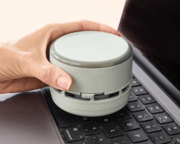From Easter treats to Easter threats? Vet reveals shocking pet danger trend
- Replies 1
As we revel in the joyous aftermath of Easter, with its family gatherings and festive treats, it's crucial to remember that what's a treat for us can be a threat to our furry friends.
Australian vets are raising the alarm about a worrying trend that's putting pets at risk, and it's something that could be lurking right in your own home.
The Easter period, while a time of indulgence for many of us, has become synonymous with a spike in emergency visits to vet hospitals.
The culprit? Our beloved Easter chocolates and those delicious hot cross buns.
While we might find these treats irresistible, they can be incredibly harmful, and sometimes even fatal, to our pets.

Chocolate, as many pet owners are aware, is a big no-no for dogs.
It contains theobromine, a compound that's perfectly safe for humans but can cause vomiting, diarrhoea, heart problems, and severe toxicity in dogs.
However, it's not just chocolate that's the issue.
Vets are now highlighting another, perhaps lesser-known danger: sultanas and other grape-like fruits found in hot cross buns.
Dr Tim Hopkins from the Small Animal Specialist Hospital (SASH) voiced his concern.
'If you're from a family that you've been lucky enough to never see the effects of grape toxicity then you could be perpetuating that idea that it's safe, but it's not for all dogs,' he warned.
‘Those dogs that are affected can suffer kidney injuries and can be irreversible. We don't know why some dogs are susceptible and others are not.’
The warning came as just this Easter weekend alone, SASH clinics treated 21 animals for hot cross bun ingestion, with some cases involving only very small quantities of the fruit.
The situation with chocolate is equally dire as over the same weekend, 77 animals needed urgent care for chocolate ingestion.
Dr Hopkins pointed out that while deliberate feeding of chocolate to dogs is ‘rare’, the real danger comes from pets getting into unguarded stashes of the sweet stuff.
'With the chocolates, I think it's mostly about unguarded chocolates or a particularly ingenious dog,' he explained.
'We have seen over the weekend, cases that would have otherwise been fatal, given the amount of chocolate that was ingested.'
‘It's alarming and we see it annually. There's no shortage of warnings in the lead-up to holidays,’ he added.
The advice from vets was straightforward: keep human food out of reach of pets.
'Hide it or eat it. Do something with it so that it's out of the scope of a greedy beagle or food-motivated labrador. They're going to be thinking about it as much if not more than you,' Dr Hopkins advised.
The alarming trend highlighted by Dr Hopkins underscores the need for pet owners to exercise caution and vigilance in monitoring their pets' surroundings to prevent accidental ingestion of harmful substances.
This sentiment was echoed in another incident, where a dog owner raises concerns about a popular toy containing potentially toxic ingredients.
The correlation between these emphasises the imperative for pet owners to remain vigilant and discerning when selecting toys and products for their beloved companions, prioritising their health and well-being above all else.
 Have you ever had a close call with your pet and something they shouldn't have eaten? We encourage you to share your experiences and tips in the comments below.
Have you ever had a close call with your pet and something they shouldn't have eaten? We encourage you to share your experiences and tips in the comments below.
Australian vets are raising the alarm about a worrying trend that's putting pets at risk, and it's something that could be lurking right in your own home.
The Easter period, while a time of indulgence for many of us, has become synonymous with a spike in emergency visits to vet hospitals.
The culprit? Our beloved Easter chocolates and those delicious hot cross buns.
While we might find these treats irresistible, they can be incredibly harmful, and sometimes even fatal, to our pets.

Vets warned against toxic substances such as chocolate and grapes which are found in common Easter treats. Credits: Shutterstock
Chocolate, as many pet owners are aware, is a big no-no for dogs.
It contains theobromine, a compound that's perfectly safe for humans but can cause vomiting, diarrhoea, heart problems, and severe toxicity in dogs.
However, it's not just chocolate that's the issue.
Vets are now highlighting another, perhaps lesser-known danger: sultanas and other grape-like fruits found in hot cross buns.
Dr Tim Hopkins from the Small Animal Specialist Hospital (SASH) voiced his concern.
'If you're from a family that you've been lucky enough to never see the effects of grape toxicity then you could be perpetuating that idea that it's safe, but it's not for all dogs,' he warned.
‘Those dogs that are affected can suffer kidney injuries and can be irreversible. We don't know why some dogs are susceptible and others are not.’
The warning came as just this Easter weekend alone, SASH clinics treated 21 animals for hot cross bun ingestion, with some cases involving only very small quantities of the fruit.
The situation with chocolate is equally dire as over the same weekend, 77 animals needed urgent care for chocolate ingestion.
Dr Hopkins pointed out that while deliberate feeding of chocolate to dogs is ‘rare’, the real danger comes from pets getting into unguarded stashes of the sweet stuff.
'With the chocolates, I think it's mostly about unguarded chocolates or a particularly ingenious dog,' he explained.
'We have seen over the weekend, cases that would have otherwise been fatal, given the amount of chocolate that was ingested.'
‘It's alarming and we see it annually. There's no shortage of warnings in the lead-up to holidays,’ he added.
The advice from vets was straightforward: keep human food out of reach of pets.
'Hide it or eat it. Do something with it so that it's out of the scope of a greedy beagle or food-motivated labrador. They're going to be thinking about it as much if not more than you,' Dr Hopkins advised.
The alarming trend highlighted by Dr Hopkins underscores the need for pet owners to exercise caution and vigilance in monitoring their pets' surroundings to prevent accidental ingestion of harmful substances.
This sentiment was echoed in another incident, where a dog owner raises concerns about a popular toy containing potentially toxic ingredients.
The correlation between these emphasises the imperative for pet owners to remain vigilant and discerning when selecting toys and products for their beloved companions, prioritising their health and well-being above all else.
Key Takeaways
- Vet hospitals saw a spike in dogs ingesting toxic substances such as chocolate and grapes over Easter.
- Chocolate is universally toxic to dogs, while reactions to grapes and sultanas could vary, but potentially cause irreversible kidney damage.
- Over the Easter weekend, 21 animals were treated for hot cross bun ingestion, and 77 for chocolate ingestion at SASH vet clinics.
- Dr Tim Hopkins advised that all leftover Easter treats should be kept out of reach of dogs, and human food should only be given if it's certain to be safe for the animal.







